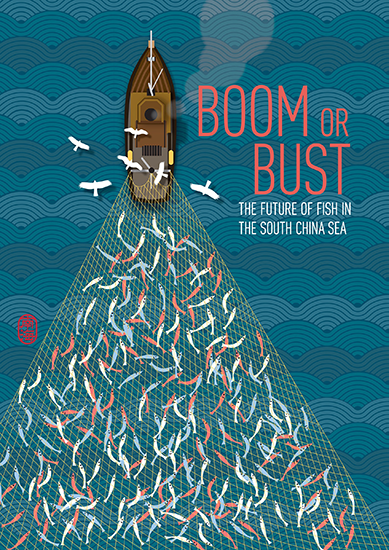Seafood for tomorrow
 |
|
[Photo provided to China Daily] |
Asia's oceans are home to some of the richest and most diverse fisheries in the world but our marine resources are severely threatened by pollution and destructive fishing practices, the report says. While pollution and water quality is partly responsible, overfishing is the main culprit, and fishing methods play a key role in impacts on the environment.
"The study shows that to rebuild biomass of key groups to a healthy level, fishing efforts of all fishing fleets have to be substantially reduced," says UBC's Rashid Sumaila, principal investigator for the project.
"If nothing is done, by 2045, relative to 2015 fish stocks, all species studied will experience a decrease in biomass (quantity of fish in the ocean) ranging from 9 to 59 percent as a result of overfishing, ocean warming, ocean acidification and changes in primary productivity," adds Cheung. "We must urgently improve fisheries management and consider our impact on the ocean via CO2 emissions."
In the meantime, the festival aims to raise public awareness about the challenges we face and encourage people to consume differently.
"Our aim is to build public knowledge of sustainable seafood, why we should care about what we are eating, and where it comes from", says Doug Woodring, co-founder of Ocean Recovery Alliance, one of the event organizers.
A key intended result, he says, is to help restaurateurs' get better access to more sustainable seafood, by increasing availability and visibility in the marketplace.
Sponsored by The Ocean Recovery Alliance and the ADM Capital Foundation, the initiative is a collaboration with the Marine Stewardship Council and the Aquaculture Stewardship Council, which are the primary organizations setting standards for sustainable seafood globally.
(China Daily 11/06/2015 page19)
















